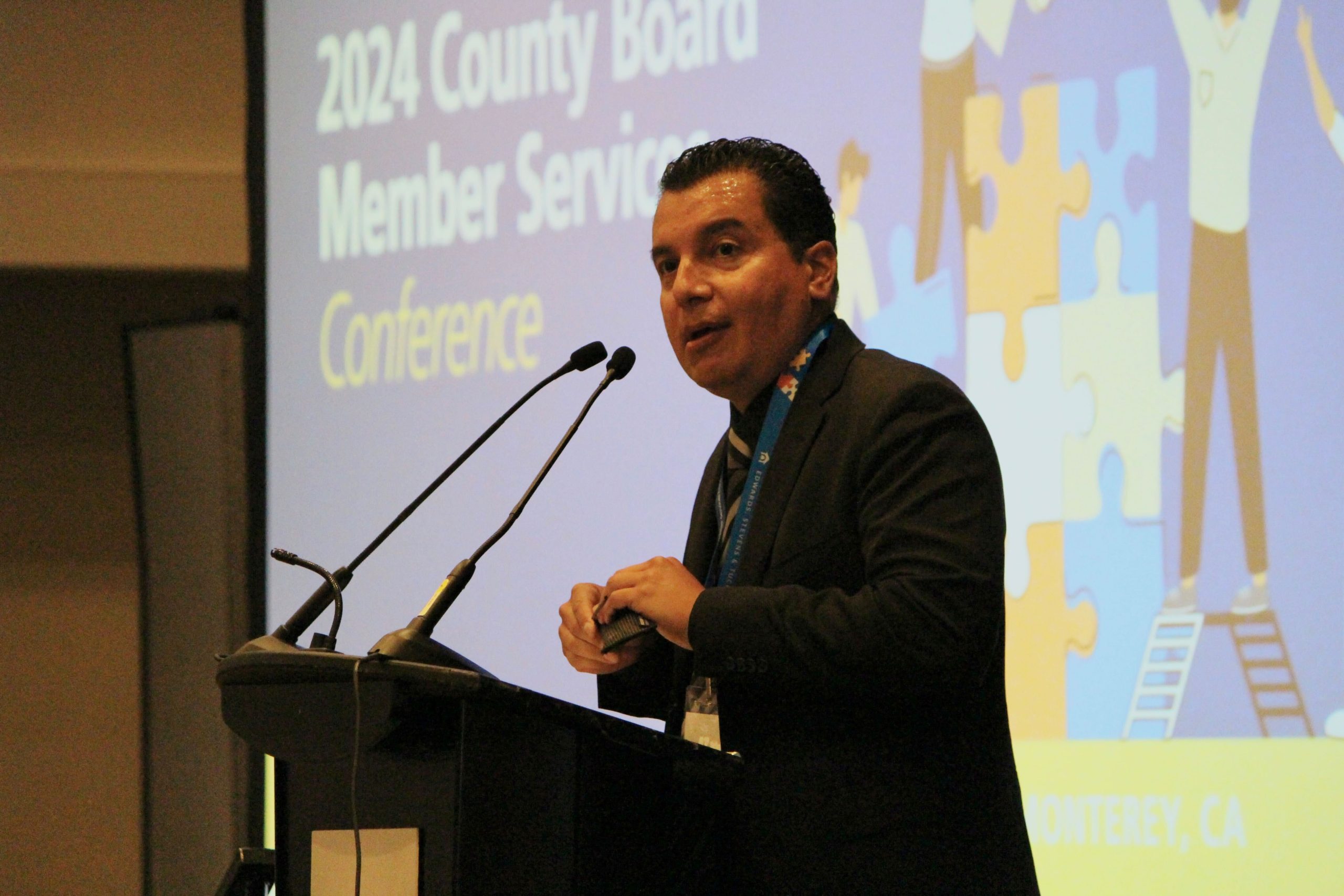The Butte County Office of Education has a long history of managing and implementing teacher pipeline programs that support rural and underserved populations, particularly migrant students. Since 1967, Butte COE has managed the statewide Mini Corps program, which brings together college students with rural migrant backgrounds who are interested in teaching to work as teaching assistants in schools with significant migrant populations. Participants serve as bilingual role models to migrant students, provide tutoring and encourage them to continue in school. The program also aims to help classroom teachers better understand migrant children and their culture, and teaching assistants can help provide a communication link between migrant students, their parents, their teachers and the school.
The program operates at 20 California colleges and universities with the goal of developing a group of diverse, bilingual teachers. Funded through the California Department of Education’s Migrant Education Program, participants are paid an hourly wage for their work in the program and receive in-service training through educational workshops. The program currently has 648 participants, including 310 classified employees. Butte COE helps with advising, exam support and pedagogy support.
Butte COE serves 14 school districts and 18 charter schools that combined serve 31,000 students in the rural Northern California region. Members of the Butte COE board understand the particular challenges of attracting and retaining a highly qualified educator workforce in a rural area. One of the issues lies in the large geographical area, serviced by a small number of higher education institutes. “One of the things that is problematic is the isolation of rural schools,” said Butte COE trustee Amy Christianson. “Oftentimes, they are on the fringe and there is no community college or other college that districts can go to to create relationships and student teaching partnerships. Research shows that if you build the culture and you have relationships, you want to go back to that community.”
Partnerships and collaboration can help fill the gaps in regions with fewer resources
To address this issue, Butte COE has partnered with local Feather River College for the Mini Corps program for many years. In 2016, the county office began looking for other partners to expand the program for bilingual educators, and how to bring the Mini Corps model to other areas in need of qualified teachers, which they identified as science, technology, engineering, math and special education. Butte COE Senior Director of Future Educator Support Guillermo Castillo approached California State University, San Diego with a partnership proposal.
A new collaboration between San Diego State University’s Department of Dual Language and English Learner Education (DLE), Feather River College and Butte COE is providing even more access to credentialing opportunities for rural educators. Project Access, as the program is aptly named, will provide “emergency” educators an opportunity to earn a bilingual credential online in as little as one year. According to the latest data available from the California Commission on Teacher Credentialing, the majority of teacher “misassignments” — defined as certificated staff who are placed in a teaching or services position for which the educator does not hold a legally recognized certificate, credential or permit — are most prevalent in teachers of English learners and special education teachers.
“A lot of rural communities are seeing a flux in their migrant populations, with lots of first-generation kids whose primary language is Spanish or Nahuatl or other native languages.” Butte COE’s Castillo said. “And they’re coming into communities that, in the past, traditionally didn’t have these populations. Places that had maybe one or two English learners suddenly now have 40 or 50.”
This has created challenges for school districts in areas that haven’t traditionally offered credential programs to train bilingual educators. Poor proximity to public universities and the cost of private online programs have also hampered the ability of rural teachers to earn bilingual credentials. Project Access also helps bridge the digital divide for rural teachers — each credential student will be set up with a technology pack, which includes a laptop, carrying case and mobile WiFi hotspot.
Supported by a $500,000 grant from the California Community College Teacher Credentialing Partnership Pilot Program, Project Access will enable rural educators to take preparatory courses through Feather River College before matriculating into SDSU’s online bilingual credential program. The project will support 20 educators per year in Plumas County, about an hour northeast of Sacramento, as well as rural communities in Southern California through partnerships with the San Diego County Office of Education and Imperial County Office of Education.
San Diego State’s DLE is the only autonomous bilingual education program in California, and has recently grown into the state’s largest producer of bilingual education teachers thanks to this online program with Butte COE. In just two years, the online program has enabled 155 classified staff members in schools across the state to earn bilingual teaching credentials.
Butte COE trustee Mike Walsh emphasized the importance of partnerships for all LEAs, and how they are especially beneficial for small and rural districts and county offices. “That’s one of the mindsets that I would love for other districts to start to take on — that there are other people out there that are already working on the same exact thing that you’re working on,” Walsh said. “When we start to share resources, it does more than just double down on the challenge. It opens options up in ways that, quite frankly, we wouldn’t think of if we’re just operating within our own collective group, having the same conversation we’ve been having. So that’s one of the things I think is a huge benefit — opening up the conversation to other districts and partners to expand beyond our own limited resources.”





